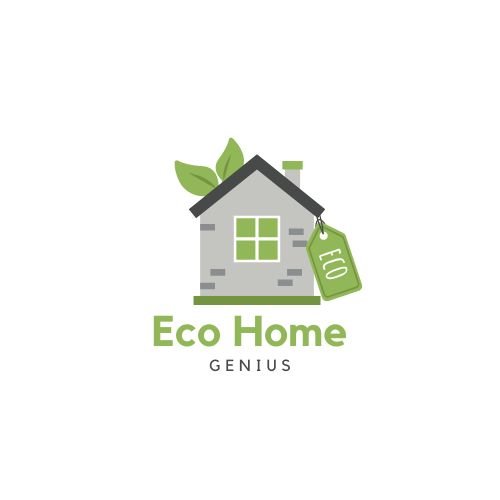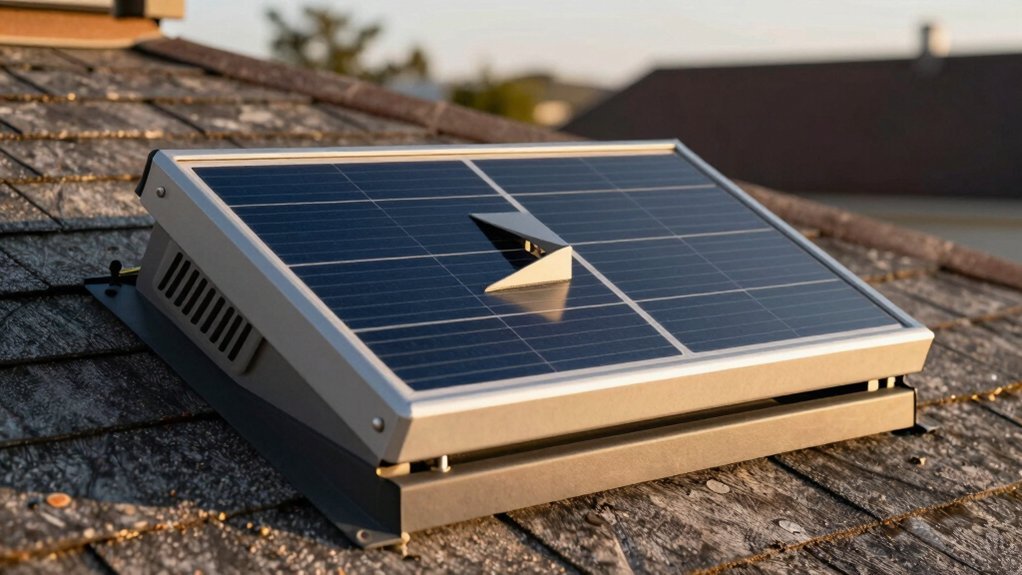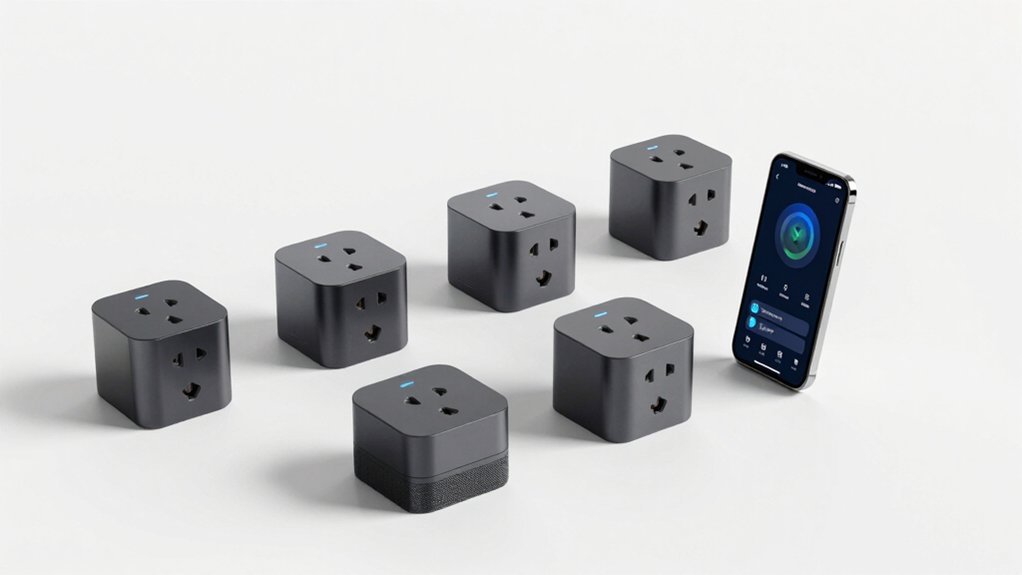You'll find several reliable tools to calculate potential cost savings when switching to geothermal heating. The Energy Department's Geothermal Cost Calculator offers a user-friendly online interface for quick estimates. For more thorough analysis, try RETScreen's Clean Energy Management Software. GeoExchange's Savings Estimation Tool provides customizable comparisons with traditional heating methods. Your local utility company may offer region-specific calculators tailored to your area's energy rates and climate. For the most accurate assessment, consult a geothermal contractor who can use specialized software to factor in site-specific details. Exploring these tools will help you make an informed decision about geothermal heating's cost-effectiveness for your situation.
Energy Department's Geothermal Cost Calculator

Calculating your potential savings is easy with the Energy Department's Geothermal Cost Calculator. This online tool allows you to estimate how much you could save by switching to a geothermal heat pump system for your home's heating and cooling needs.
To use the calculator, you'll need to input some basic information about your current heating and cooling setup, including your fuel type, equipment efficiency, and annual energy costs. You'll also need to provide details about your home, such as its size and location.
The calculator then compares your current system's costs with those of a geothermal heat pump system. It factors in the initial installation costs, annual operating expenses, and potential energy savings over time.
You'll see a breakdown of your estimated yearly savings and the payback period for the geothermal system. This tool helps you make an informed decision about whether geothermal heating and cooling is right for your home.
It's important to remember that while the calculator provides a good estimate, actual savings may vary based on factors like local energy prices and specific installation details.
RetScreen Clean Energy Management Software
For a more thorough approach to evaluating geothermal heating costs, you might consider using RETScreen Clean Energy Management Software. This all-encompassing tool, developed by the Government of Canada, allows you to conduct detailed feasibility studies and performance analyses for various clean energy projects, including geothermal heating systems.
RETScreen offers a user-friendly interface that guides you through the process of inputting your project's specific data. You'll need to provide information about your location, building characteristics, energy consumption patterns, and proposed geothermal system specifications. The software then uses this data to calculate potential energy savings, greenhouse gas emission reductions, and financial metrics such as payback period and return on investment.
What sets RETScreen apart is its extensive database of climate information and equipment performance data. It also includes sensitivity and risk analysis features, helping you understand how different variables might impact your project's outcomes.
You can compare your geothermal heating system to conventional alternatives, allowing for a more informed decision-making process. While RETScreen requires more time and effort to use than simpler calculators, it provides a much more robust and customizable analysis of your potential geothermal heating cost savings.
GeoExchange's Savings Estimation Tool

Another valuable resource for estimating geothermal heating cost savings is GeoExchange's Savings Estimation Tool. This user-friendly online calculator helps you compare the costs of geothermal systems with traditional heating and cooling methods. You'll input data specific to your location, home size, and energy usage to get personalized results.
The tool provides a thorough analysis of potential savings, considering factors like installation costs, energy prices, and system efficiency. Here's a breakdown of the key features:
| Feature | Description |
|---|---|
| Location-based | Uses local climate data |
| Customizable | Adapts to your home's specs |
| Multi-system comparison | Compares various HVAC options |
| Long-term projections | Estimates savings over time |
| Energy price forecasting | Accounts for future energy costs |
You'll find the results easy to understand, with clear comparisons between geothermal and conventional systems. The tool also highlights environmental benefits, showing potential reductions in carbon emissions. By using GeoExchange's Savings Estimation Tool, you're empowered to make an informed decision about investing in geothermal heating for your home. It's a practical way to visualize the long-term financial and environmental impacts of switching to geothermal energy.
Local Utility Company Calculators
Many local utility companies offer their own geothermal heating cost savings calculators. These tools are often tailored to your specific region, taking into account local energy rates, climate conditions, and typical heating demands.
You'll find these calculators on your utility company's website, usually in the energy efficiency or renewable energy section.
To use these calculators, you'll typically need to input information about your home, such as its size, insulation level, and current heating system. You may also need to provide details about your energy usage patterns and current utility bills.
The calculator will then estimate your potential savings by comparing the costs of geothermal heating to your current system.
One advantage of using your local utility's calculator is that it often includes up-to-date information on available rebates and incentives for geothermal installations. This can give you a more accurate picture of your total investment and long-term savings.
However, keep in mind that these calculators may not account for all variables, so it's wise to use them as a starting point and consult with a geothermal professional for a more detailed analysis.
Geothermal Contractor Assessment Tools

Equipped with specialized software and expertise, geothermal contractors often use their own assessment tools to provide you with a detailed analysis of potential cost savings. These tools consider various factors specific to your property, including soil composition, groundwater levels, and available land area for loop installation.
When you consult a geothermal contractor, they'll typically conduct a site survey and gather information about your current heating system and energy usage. They'll input this data into their proprietary software, which calculates the ideal geothermal system design for your needs. This includes determining the appropriate size of the heat pump, the type and length of ground loops required, and the estimated installation costs.
The contractor's assessment tools will then generate a thorough report outlining projected energy savings, return on investment, and payback period. They'll often compare these figures to your existing heating system and other alternative options.
Some advanced tools even factor in local incentives, utility rates, and potential future energy price increases to give you a more accurate long-term cost projection. By utilizing these specialized assessment tools, geothermal contractors can offer you a tailored analysis that helps you make an informed decision about investing in geothermal heating.
Frequently Asked Questions
How Long Does a Geothermal Heating System Typically Last?
Your geothermal heating system can typically last 20-25 years for indoor components and 50+ years for ground loops. You'll enjoy decades of efficient heating, but remember to maintain it regularly for peak performance and longevity.
Are There Any Government Incentives Available for Installing Geothermal Heating Systems?
Yes, you'll find various government incentives for geothermal heating systems. They often include federal tax credits, state rebates, and local utility incentives. Check with your state's energy office or a local contractor for specific programs in your area.
Can Geothermal Heating Systems Be Used in All Climate Zones?
Yes, you can use geothermal heating systems in all climate zones. They're effective in both hot and cold regions because they tap into the earth's constant temperature below the surface. You'll benefit from their versatility year-round.
What Maintenance Is Required for a Geothermal Heating System?
You'll need to perform regular maintenance on your geothermal heating system. This includes checking antifreeze levels, inspecting pipes for leaks, cleaning filters, and having a professional technician service the heat pump annually to guarantee peak performance.
How Does Geothermal Heating Affect a Home's Resale Value?
You'll likely see an increase in your home's resale value with geothermal heating. It's an attractive feature for buyers, offering long-term energy savings and eco-friendliness. You're investing in a sustainable, efficient system that'll appeal to future homeowners.
In Summary
You've now got five powerful tools at your fingertips to calculate your potential geothermal heating cost savings. Whether you're using the Energy Department's calculator or working with a local contractor, you'll be able to make an informed decision about geothermal energy for your home. Don't hesitate to use multiple tools for a thorough picture. With these resources, you're well-equipped to determine if geothermal heating is the right choice for your energy needs and budget.





Leave a Reply